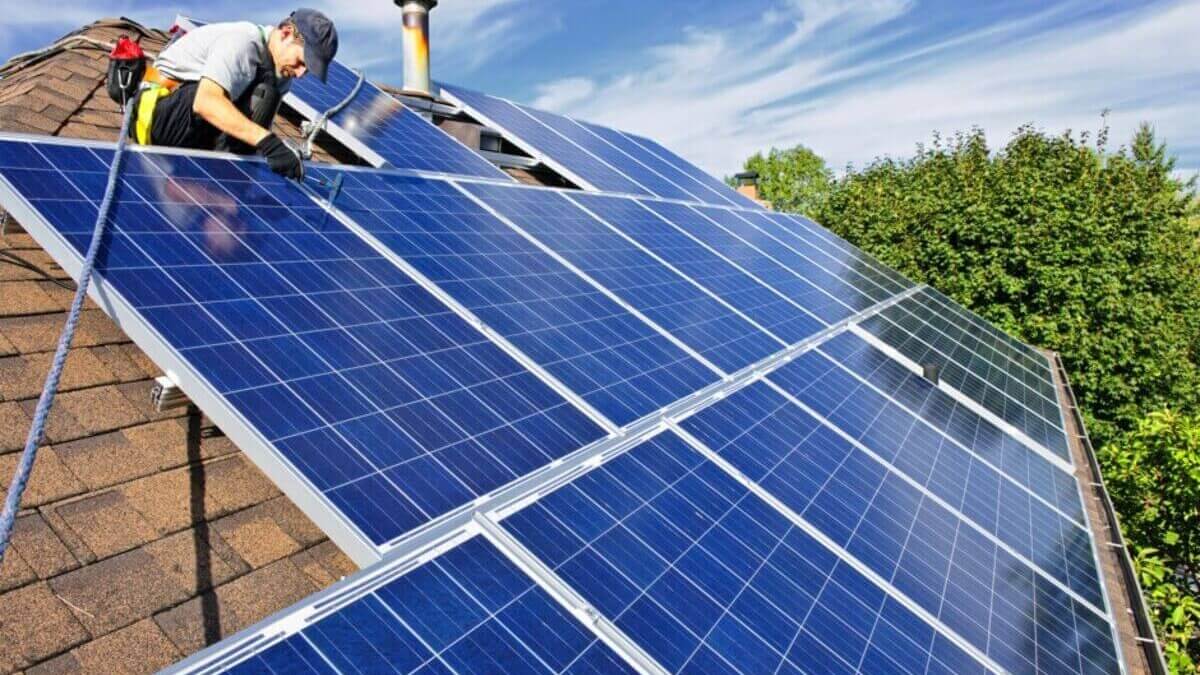Introduction
Solar panels have gained immense popularity in recent years as a sustainable and cost-effective alternative to traditional energy sources. However, as more homeowners consider installing solar panels on their roofs, concerns about safety naturally arise. Are solar panels truly safe for your roof? Let’s delve into the topic to address common questions and misconceptions.
We at PLJ are the leaders in carpentry services in Cape Cod, MA, and roofing specialists.

Click here and get a free quote for your roofing project with PLJ Carpentry
Exploring Solar Panels: Converting Sunlight into Electricity on your Roof
Solar panels, also known as photovoltaic (PV) panels, are devices that convert sunlight into electricity. They consist of solar cells that capture sunlight and convert it into direct current (DC) electricity, which is then converted into alternating current (AC) electricity by an inverter for use in homes and businesses. With advancements in technology, solar panels have become more efficient and affordable, making them an attractive option for many.
Benefits of Solar Panels
Before delving into safety concerns, it’s essential to highlight the numerous benefits of solar panels. Firstly, they offer significant environmental benefits by reducing greenhouse gas emissions and reliance on fossil fuels. Additionally, solar panels can lead to substantial cost savings on electricity bills over time, providing a return on investment for homeowners. Moreover, installing solar panels promotes energy independence, as users generate their electricity rather than relying solely on the grid.
Safety of Solar Panels on Roofs
Despite their advantages, some concerns linger regarding the safety and practicality of solar panels. Among these concerns, safety ranks high on the list, particularly regarding their impact on the integrity of the roof and the risk of accidents such as fires.
Structural Integrity
One of the primary concerns homeowners have is whether their roof can support the weight of solar panels. Fortunately, most roofs are structurally capable of accommodating solar panel installations. However, it’s crucial to assess the roof’s condition and consult with a professional to ensure it can bear the additional load.
Fire Risk
Another concern is the risk of fires associated with solar panels. While the possibility of a fire is relatively low, it’s essential to use high-quality materials and follow proper installation practices to minimize any potential risks. Additionally, regular maintenance and inspections can help detect and address any issues promptly.
Weather Resistance
Solar panels are designed to withstand various weather conditions, including rain, snow, and hail. Quality panels are made with durable materials that can endure exposure to the elements for decades without significant damage.
Factors Affecting Safety
Several factors can influence the safety of solar panel installations on roofs, including:
- Installation Quality: Proper installation by trained professionals is essential for ensuring safety and optimal performance.
- Type and Quality of Materials: Choosing high-quality solar panels and mounting equipment can enhance safety and longevity.
- Maintenance: Regular maintenance, including cleaning and inspection, is crucial for identifying and addressing potential issues before they escalate
Measures to Ensure Safety of Your Roof
To maximize safety when installing solar panels, homeowners should:
- Opt for Professional Installation: Hiring experienced installers ensures proper placement and adherence to safety standards.
- Schedule Regular Inspections: Periodic inspections by professionals can detect any issues early on and prevent potential hazards.
- Follow Safety Standards: Adhering to industry best practices and safety standards minimizes risks associated with solar panel installations.
Common Misconceptions About Solar Panels
Myth Debunking
Several misconceptions surround solar panels, including concerns about their safety and effectiveness. However, advancements in technology and rigorous safety standards have addressed many of these concerns, making solar panels a reliable and safe energy solution for homes and businesses.
Addressing Concerns
It’s essential to address any specific concerns or misconceptions homeowners may have about solar panels to reassure them of their safety and efficacy. Educating consumers about the benefits and safety measures associated with solar panel installations can alleviate any apprehensions they may have.
Case Studies
Real-life examples of successful solar panel installations can provide reassurance to homeowners considering adopting this renewable energy source. Case studies showcasing safe and efficient installations highlight the practicality and benefits of solar panels while dispelling any doubts about their safety.
Conclusion
In conclusion, solar panels are generally safe for roofs when installed correctly and maintained adequately. By addressing common concerns, debunking myths, and highlighting safety measures, homeowners can make informed decisions about adopting solar energy. With professional installation, regular maintenance, and adherence to safety standards, solar panels offer a reliable and sustainable energy solution for homes and businesses.
